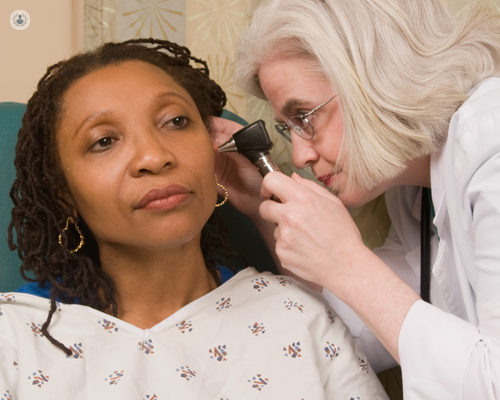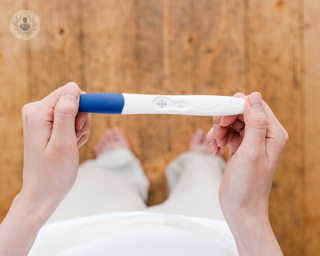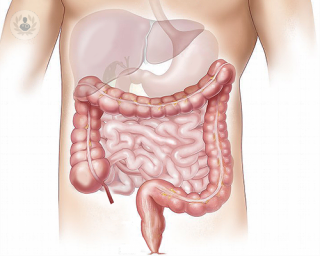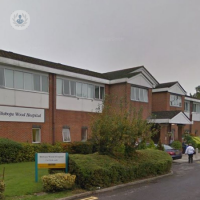Polyps
What are polyps?
Polyps are abnormal tissue growths (clumps of cells) that appear as small bumps mostly on the inner lining of the large intestine (colon) or on the rectum (anus). It is also possible to develop polyps in the ear canal, cervix, stomach, nose, and uterus.
Some people may develop only one whilst others can develop two or more at a time. They can either be on a stalk and therefore have the appearance of a mushroom or appear much flatter and have a broad base.
Polyps are usually non-cancerous (benign) but in some cases, and if left undetected, they can eventually become cancerous (malignant). They are very common and it is unusual for them to occur in anyone below the age of 40. They most often occur in people over the age of 60.

What are the symptoms of polyps?
The symptoms of the polyp depend on the location. Some of these may include:
- Ear canal – hearing loss, blood draining from the ear.
- Cervix – foul-smelling vaginal discharge, a heavier flow during periods, spotting between periods, bleeding after sexual intercourse.
- Colon – bleeding from the rectum, abdominal pain, a change in colour of stools, constipation or diarrhoea.
- Nose – a runny nose, persistent stuffiness, decrease or loss of sense of smell, a feeling of pressure over the forehead and face.
- Stomach – pain or tenderness in the abdomen, nausea, blood in the stool.
- Uterus – irregular menstrual bleeding, infertility, bleeding between periods, excessively heavy periods.
- Vocal cords – hoarseness, breathiness, a rough or scratchy voice.
- Bladder lining – constant or urgent need to urinate, pain in the abdomen, pain whilst urinating, blood in the urine.
What are the causes of polyps?
The causes of polyps depend on the location. Some known causes include a mutation in the genes of the cells, a cyst, a tumour, inflammation, chronic stomach inflammation and a foreign object.
Risk factors for polyps include smoking and drinking excessive alcohol, having a family history of polyps and cancer, obesity and conditions that are not managed well such as type 2 diabetes or Crohn’s disease.
How are polyps diagnosed?
The specialist will perform a physical examination and ask questions about your medical history. They will use imaging tests like X-rays, ultrasound or a CT scan to have a better look at the infected area.
If the doctor suspects that the polyp is cancerous, they may perform a biopsy. If the polyp is in the colon, a colonoscopy may be required to give the doctor a better image and they will be able to remove them.
How are polyps treated?
Not all polyps require treatment as they are benign and, for example, in cases of throat polyps, they typically go away on their own. Polyps may be surgically removed with a procedure called polypectomy to further prevent them from developing into cancer.
















